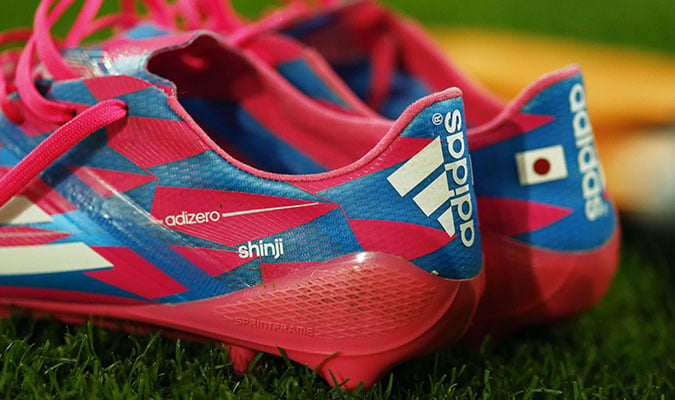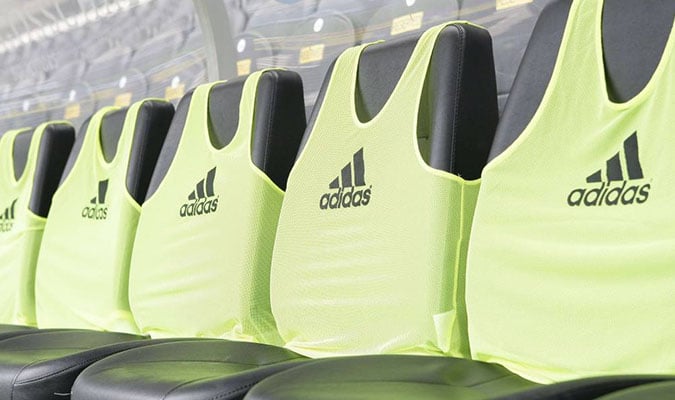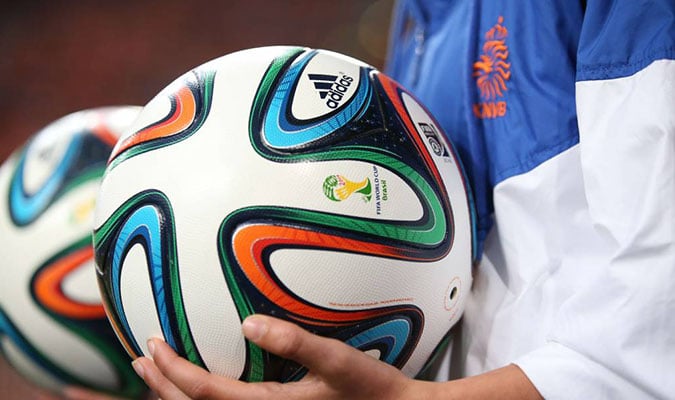Search the latest and greatest job opportunities in sport

In 2018 plenty of new companies will be set up and many will thrive. Some might even go on to become recognisable names all around the world. Few if any will be able to claim anything like the success that Netflix has had, especially over the last few years.
It’s a given that the OTT entertainment service is considered as one of the top companies in its field, and given its success in this world of on-demand video streamed through mobile phones and TVs as well as laptops and computers, it’s probably fair to say that it’s one of the top names in any field.
So big is it, in fact, that Netflix is now being seen as a competitor to anything and everything. Recently Business Insider reported comments from Adidas’ global creative director, Paul Gaudio, who listed the online streaming service as a rival to the sportswear brand, and one of the few companies left who can still legitimately claim to be more recognisable and ubiquitous as Netflix. A rival in the sense that they’re another company “competing for share of wallet”, as Gaudio put it, but a rival nonetheless.
There’s a reading of that which makes it sound like the headline quote is doing all the work. That it is a definition which casts the net so wide as to be thoroughly uninteresting. And that any organisation selling literally anything to anyone is a competitor to Adidas under those parameters. And yet there’s something significant about saying it out loud.

The context is coloured by the fact that Gaudio was asked about whether the likes of Netflix and Instagram are competitors to Adidas given that they’re competing not just for “wallet share” but also for the attention of, specifically, young people. And that fact is fairly important. The German sportswear brand have themselves cast the net fairly wide, moving away from being just a “sports” brand into becoming a “lifestyle” brand, one which is probably more like the likes of Netflix and Amazon than most.
It’s been a long time since Adidas just made sportswear. Since the 1970s, they’ve been making trainers which have become icons of style, helping their sponsored athletes become more than just sportspeople and more like influencers – ‘creators’ as the newest campaign would have it.
It’s the latest in the long line of brands changing their images to become something more than they were before by essentially looking to cash in on people’s lifestyle choices: in this case, things like fitness, which is now essentially what Adidas sell, rather than sport itself.
This could have a profound effect on sport in the coming years.

All sports still need to grow. Even the Premier League is attempting to expand and grow in new parts of the world where it feels it can create new fans and garner new support, while top US sports like the NFL and NBA are expanding into Europe in a way which feels significant. And that’s just to name a few who are already very big anyway. But one of the ways we know they all want to grow is by increasing participation rates in their sports: getting people participating, especially at a young age, is a way to make sure they’re interested for the rest of their lives.
But sport is what they’re selling.
It’s niche and it’s small, in some ways. It’s not a catch-all idea like fitness – not a way of life as such. If you’re not into rugby or cricket, you’re not into it, they’ll say; but you can still be into getting fit. You can still be interested in being the best you can be.
Netflix, too, is selling a lifestyle – one where you get to watch loads of TV shows, both new and old, as well as films from all over the world. It can be as cultural or as trashy as you want it.
But all of these things are, by their nature, participatory. You do the fitness – just wearing the Adidas branding – and you do the watching – on Netflix. But with sport, paradoxically – there’s little participation involved. You do the watching in the same was as you do on Netflix, but you don’t have as much to show for it as you might if you’d watching a really deep film. Which is weird for a field which is supposed to be about participation.
Maybe that’s what sport as a whole can learn from brands like Adidas and Netflix. That the more the biggest and most-watched sports like football start to package their content and sell it off to broadcasters as though it’s a particularly well-loved TV show, the less it becomes about participation. And the more people feel detached from something that was once was all about taking part.
This article was originally published by our partner Digital Sport written by regular contributor Chris McMullan. Read the original article here.
Give your career a boost with the latest live vacancies in t he sports industry , or create an account today and stay up to date with all the latest industry knowledge, events and jobs in sport.
Search the latest and greatest job opportunities in sport
In the world of professional sports, sponsorship represents a significant source of revenue and plays a vital role for t...
Read moreThe sports industry is a vibrant and multifaceted industry, made up of a diverse range of sectors that shape its global ...
Read morePablo Romero, director of protocol at Sevilla FC and lecturer in the UCAM Master's Degree in Sports Management, shares t...
Read more